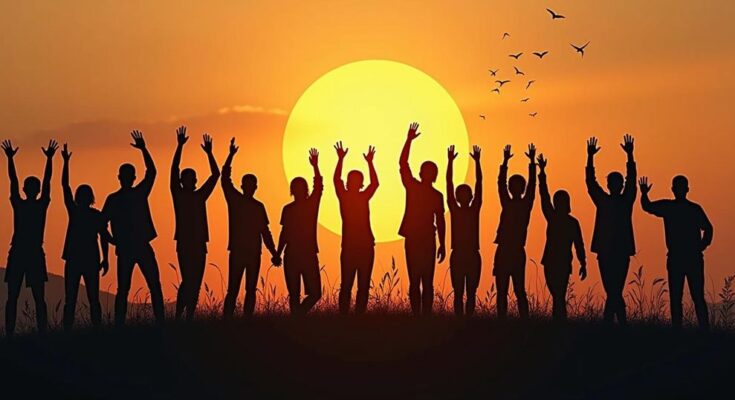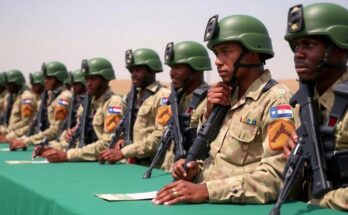The UN Security Council emphasized the need for collective action to support the Democratic Republic of the Congo in overcoming violence and addressing resource exploitation. While a recent ceasefire offers hope, the challenges from armed groups and humanitarian crises persist, necessitating national and international mobilization for peace efforts.
The situation in the Democratic Republic of the Congo (DRC) demands a concerted effort from national, regional, and international stakeholders to confront ongoing violence, the trafficking of natural resources, and other pressing issues affecting the nation. Addressing the UN Security Council, Bintou Keita, Special Representative of the Secretary-General and head of the UN Mission in the DRC (MONUSCO), emphasized the necessity of collective engagement to assist the DRC in its pursuit of peace and stability. Keita highlighted a significant reduction in conflict among various parties in the eastern DRC following a ceasefire announced on July 30 by the DRC and Rwanda, mediated by Angola. However, she underscored that “peace is not yet won.” The establishment of an active dialogue framework between the DRC and Rwanda paves the way for potential conflict resolution. Despite recent progress in political and institutional reforms, alarming challenges persist, particularly concerning the exploitation of natural resources. The intensification of violence in Ituri province predominantly arises from armed groups striving to seize control over valuable mining areas. As semi-mechanized gold mining has proliferated, groups have evolved into organized forces with considerable financial backing, undermining local governance and exacerbating violence. A notable example is the M23 military group, which has consolidated power over mining territories in North Kivu province, particularly in relation to coltan extraction. The region reportedly contributes over 15 percent of global tantalum production, generating around $300,000 monthly for M23. Keita warned that “the criminal laundering of the DRC’s natural resources smuggled out of the country is strengthening armed groups,” increasing exploitation of civilian populations and hampering peace efforts. She called for international sanctions against those profiting from this trade to avert further suffering among civilians. Moreover, the persistent threat from the Allied Defense Forces (ADF) poses significant challenges, as the group has ramped up attacks amid a void left by Congolese forces redeployed to combat M23. With an alarming casualty rate in June alone, and millions displaced due to ongoing conflict, the humanitarian crisis remains dire. Keita urged for comprehensive support for peace initiatives, noting that the mediation process facilitated by Angola represents a critical opportunity for reducing tensions between Rwanda and the DRC. Efforts must extend beyond dialogue in Luanda, involving investments at various levels within the DRC. To fortify peace from the ground up, MONUSCO is partnering with local organizations and communities to uphold hard-won advancements while continuously protecting civilians amid escalating violence. The mission is also evaluating the withdrawal process from South Kivu, having concluded operations there, and striving to fulfill responsibilities until its departure is complete. In conclusion, while the DRC faces multi-faceted challenges exacerbated by violence and resource exploitation, dedicated efforts at both national and international levels are critical to building a sustainable path toward peace and stability.
The article outlines the myriad challenges facing the Democratic Republic of the Congo, particularly in the eastern regions plagued by violent conflict, competition over natural resources, and humanitarian crises. The situation requires active involvement from multiple stakeholders, including the United Nations and neighboring countries, to foster dialogue and ensure stability. Key issues highlighted are the relationship between armed groups and the mining industry, the ongoing humanitarian crisis due to population displacement, and the need for international support to reinforce local governance and human rights.
The Democratic Republic of the Congo stands at a critical juncture where collaboration among local, regional, and international actors can facilitate substantial progress towards lasting peace. Despite recent advancements in dialogue and ceasefire agreements, severe challenges remain due to armed conflict and resource exploitation. Continued international support, particularly in sanctions against exploitative practices, will be essential to protect civilian populations and promote stability within the DRC.
Original Source: news.un.org




